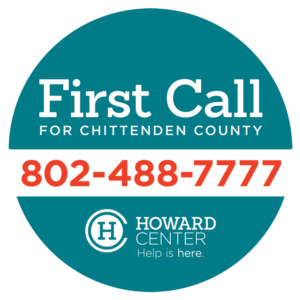Six mornings a week the Chittenden Clinic hums with activity. About 200 tradespeople, businesspeople, service workers, parents, grandparents, and others visit as early as 6:00 am to get medication, see counselors, and maybe have a coffee and a quick visit with other patients or staff before getting on with the day.
“We have people coming from the whole spectrum of life circumstances,” said Bianca Blaikner, director of the clinic. “What brings them here is a shared desire to feel better – to shift or decrease their substance use. When people come here, they feel like they belong.”
Chittenden Clinic is one of a small number of clinics in Vermont authorized to provide methadone as a treatment for opioid use. Because of its effectiveness, methadone has been especially helpful since the powerful opioid fentanyl became widely available. Methadone is also very tightly regulated and can’t be sent home with patients in the same way as other medications. Instead, new patients visit the clinic daily to receive methadone. Clinic staff members work closely with patients to help them work up quickly to taking home doses, starting with one day’s worth, and in time up to as much as a month’s supply.
The clinic opens every weekday at 6:00 am when people begin to drop in for what is usually a 15-minute dosing visit. On Saturdays, dosing starts at 7:00 am and patients are given take-home medication for Sundays when the clinic is closed.
Patients find friendly staff focused on supporting them throughout what can be a challenging process. Treatment means frequent visits to the clinic, regular urine testing, and other requirements. In addition to providing counseling, staff help with transportation and bus passes, and with connections to other services within Howard Center and in the community.
One thing that’s clear at the clinic is the sense of community and connection. Everyone is sharing a similar experience so there’s none of the stigma or judgement people might experience in other settings. While visiting to dose, patients linger in the drop-in space to chat or ask about additional services. Parents often have their children in tow and might sit for a moment to read a book and have a snack with their child.
When asked about how people develop substance use challenges, Blaikner rattles off a list of causes. “Overprescription of opioid pain medication is still impacting people. We see lots of people who maybe had an injury when they were younger, got a prescription, and became dependent. Others had parents or friends who used opioids and encouraged them to try it. The experiences are as varied as the people.”
Blaikner explains that it’s a misperception that opioid use is always a choice. Many people have taken opioid pain medication and not developed a dependency, but others have life experiences or genetic traits that make them much more susceptible. “We need to treat drug use like a chronic illness,” said Blaikner. “We don’t blame people for having an illness, and it should be the same for people who have an addiction.”
Only about 20% of clinic patients visit on any given day because so many have progressed to taking home doses. Whether a patient’s goal is to taper off methadone over time, or continue to take it for the long-term, clinic staff help guide and assist people to achieve their goals.
“Treatment can be hard, and we’re here to support people and make sure they have agency, and can make decisions about building their quality of life,” said Blaikner. “We’re working right alongside people and we’re excited when one of our patents shares a personal success with us. When someone gets a new job or finds housing, we’re seeing them build hope. We all feel a real sense of gratitude and success every day when patients walk through our doors.”
Anyone thinking about starting treatment for opioid use is welcome to call or visit the clinic. Intakes are available Monday-Friday mornings, and most people can receive their first dose on the same day.

